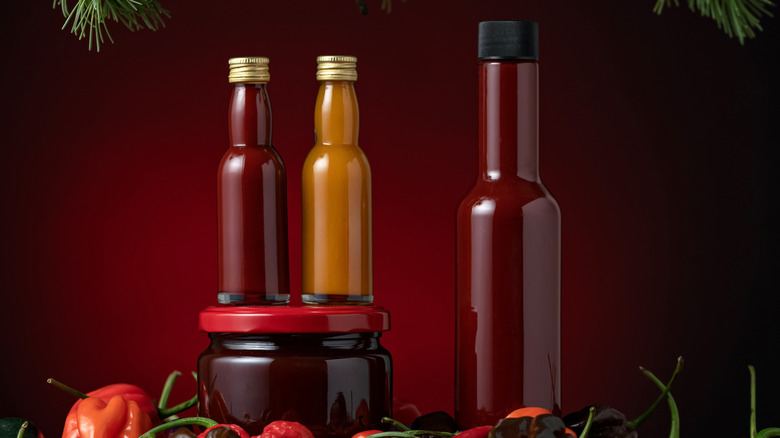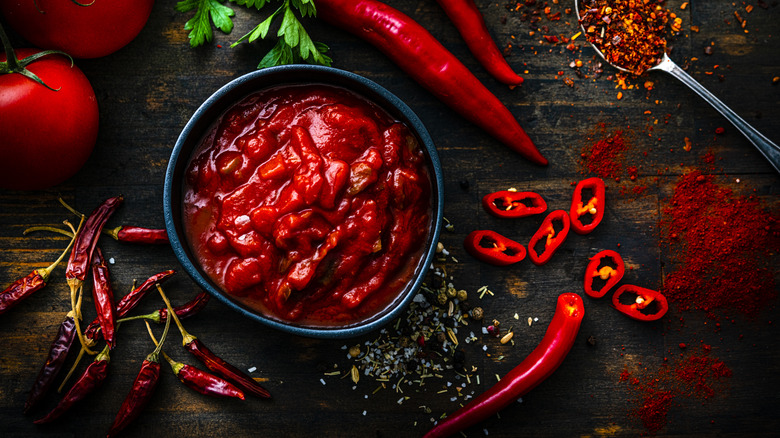Why Aging Is An Important Part Of Hot Sauce Making
Making hot sauce at home is one of those recipes that seems challenging, but it's surprisingly easy. It's a super customizable recipe — choose the chilis, the spice level, and if you want to add a touch of sweet or smoky. One extra step to add to the process to amp up the flavor of hot sauces is aging it. Chowhound spoke to Noah Chaimberg, Founder and CEO of HEATONIST, a small batch producer of natural sauces, who shared, "We always let hot sauce samples sit for a couple of weeks after cooking so we can understand the true flavor."
Chaimberg explains the difference a bit of time makes, "The ingredients marry in that time and then we experience it like a consumer would." Once peppers are blended into a hot sauce with ingredients like salt and vinegar, the mixture can be aged for weeks or even years. Over time, the flavor of the peppers changes and becomes more enhanced due to certain compounds like phenolics and esters. One of the most beloved hot sauces, Tabasco, is aged for three years before it is bottled.
Giving the ingredients time to incorporate can help amplify the flavor. This same effect occurs when "aging" something like cookie dough; when the ingredients sit together longer, they become more harmonious, and in some cases less aggressive. Vinegar, a popular base for many hot sauces, tastes sharper when fresh, but starts to mellow out over time. The same is true for an ingredient like raw garlic.
Are some hot sauces better fresh?
A freshly made hot sauce is fine to consume; in fact, Noah Chaimberg states, "That said, there are definitely some sauces that taste great fresh out of the pot." Hot sauces that incorporate fresh herbs, such as cilantro, are probably better to use right away. Cool flavors and refreshing herbal notes are what make fresh herbs delicious in a hot sauce, and letting the sauce age would mean some of these flavors would mellow out over time.
Hot sauces with fruit are good to use fresh, as this is when the individual flavors of the fruit will likely be strongest. Peach and pineapple are two examples of fruit commonly used in hot sauces — over time, spicy peppers and vinegar will start to cover up some of the sweetness and juiciness. Plus, these typically have a refrigerator shelf life of a week. Any hot sauce with raw ingredients — peppers, vegetables, fruit, or herbs — will start to lose some of the fresh, crisp, and juicy flavors.
If you like being able to differentiate flavors better in a hot sauce, use it up quickly. The longer the flavors sit together, the more they incorporate into each other, making it more difficult to taste the various varieties of chili or spices. Vinegar-free or low-vinegar hot sauces are better to consume fresh — vinegar acts as a preservative, so those without it won't stay good for as long unless another preservative or preservation method is applied.

